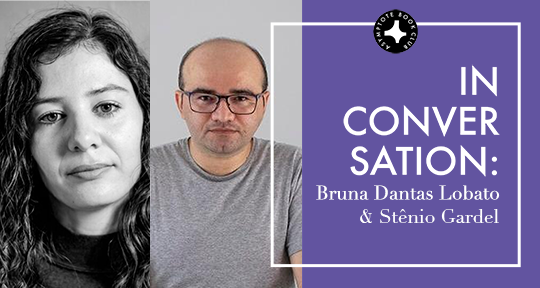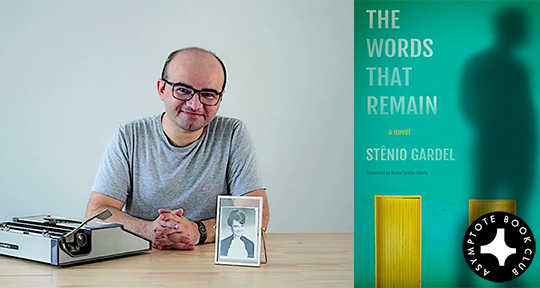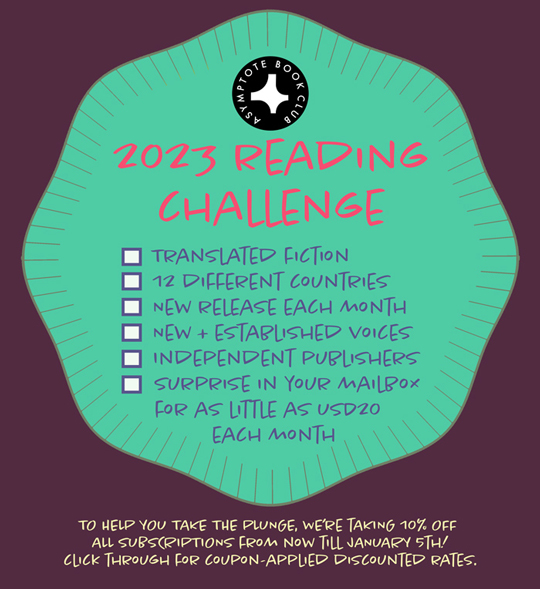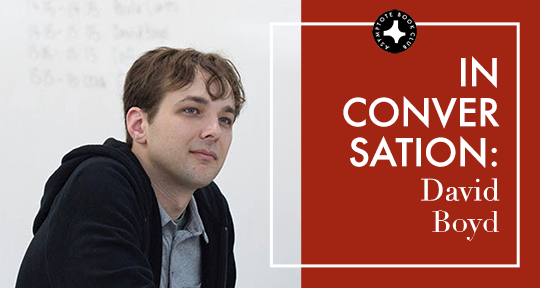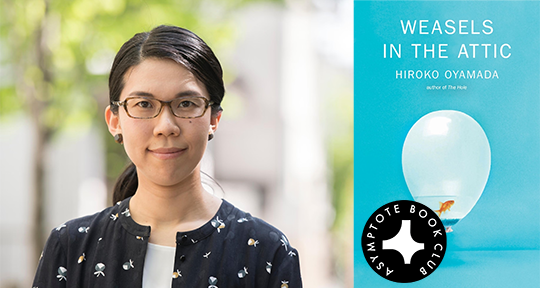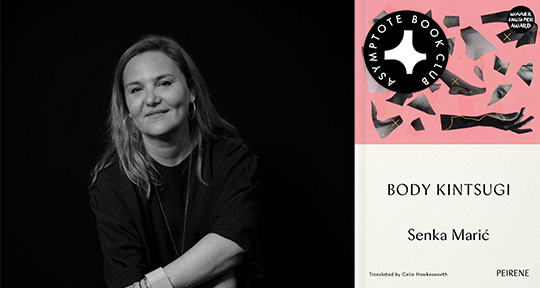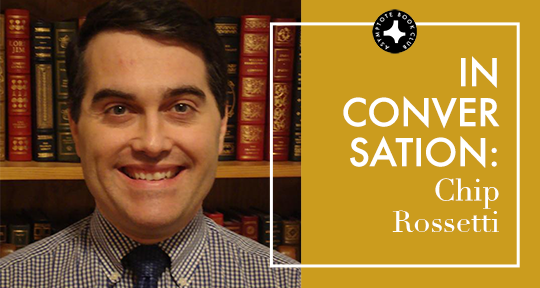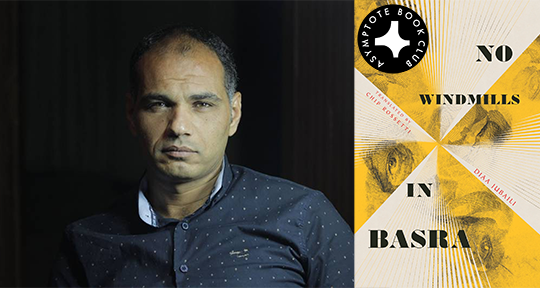Many are likely to be acquainted with celebrated Mexican writer Yuri Herrera by way of his novels, but in this latest collection of short stories, the author extends his brilliance to a vast array of disciplines and subjects. With elements of politics, philology, science, and storytelling, these tales not only display the talents of a master craftsman of language, but also an endlessly inventive imagination, a sharp humour, and a fascination with how this world—and other worlds—work. As our Book Club selection for the month of February, we are proud to bring to our readers this riveting constellation of ideas and dimensions.
The Asymptote Book Club aspires to bring the best in translated fiction every month to readers around the world. You can sign up to receive next month’s selection on our website for as little as USD20 per book; once you’re a member, join our Facebook group for exclusive book club discussions and receive invitations to our members-only Zoom interviews with the author or the translator of each title.
Ten Planets by Yuri Herrera, translated from the Spanish by Lisa Dillman, Graywolf Press, 2023
One of the simple pleasures of science fiction is the possibility of escapism—into another reality, galaxy, or dimension beyond our reach. In the vibrant imagination of Yuri Herrera, however, abandoning the rules of our world allows for a speculative fiction that unites fantasy with lucid reflections on contemporary culture, experimenting with the bounds of genre to create something uniquely Herreran. The twenty stories that comprise Ten Planets, astutely translated by Lisa Dillman, combine the philosophical musings of Borges with a characteristic humour and warmth, inviting us to explore the twenty-first century and beyond.
From a house that plays tricks on its inhabitants to a bacterium that gains consciousness in an unsuspecting Englishman’s gut, Herrera’s imagination works on scales both large and infinitesimally small. The stories cover distances ranging the interplanetary and the interpersonal while retaining a sense of warmth and wonder at the world, expanding beyond genre conventions with a wry humour that packs a surprising punch. Dillman, in an insightful translator’s note, reflects on her personal reservations towards science fiction until she read the works of Octavia E. Butler, within which she saw how science fiction can shake off the coolness of rationality by turning its attention to very human problems, the ones we experience on a day-to-day basis. Herrera’s work is exemplary of the best of the genre in that sense, joining Butler, Ursula K. Le Guin, and others in his ability to imagine a dazzling array of worlds that each speak to our contemporary anxieties—from technological surveillance in ‘The Objects’ and the absurdity of the terms and conditions tick-box in ‘Warning’, to real stories of alienation and societal marginalisation in ‘The Objects’ (two stories bear the same name—because why not be playful?). READ MORE…


